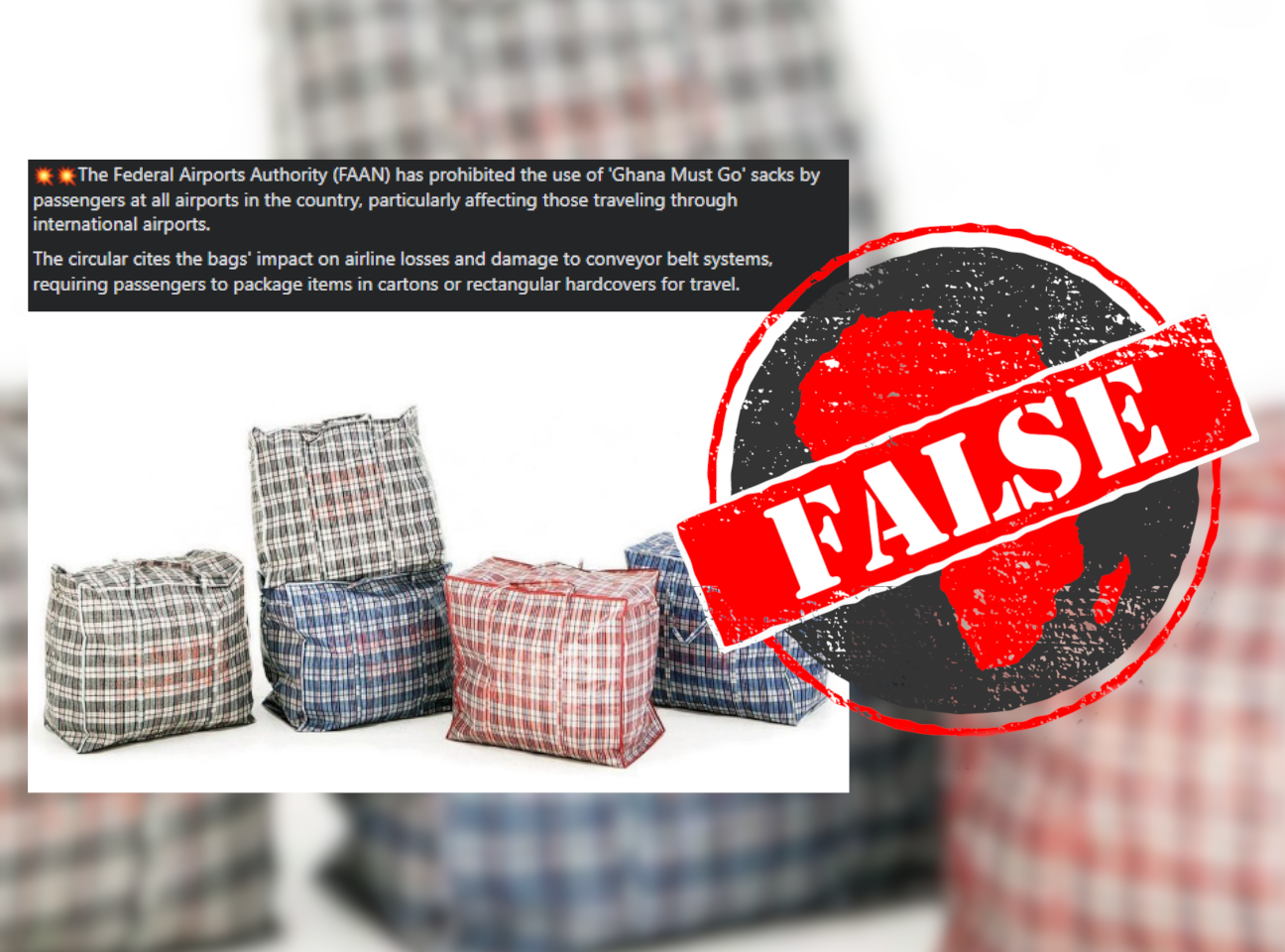IN SHORT: A ban on “Ghana must go”-bags was not put in place by the Nigerian authorities but was imposed by Ethiopian Airlines, which cited damage to infrastructure as a reason.
Travel sack bags, popularly known as “Ghana must go”, have been banned by the Federal Airports Authority of Nigeria (FAAN), according to posts on Facebook.
The FAAN manages Nigeria's commercial airports, passenger and cargo airlines.
One post claims the agency has “prohibited the use of 'Ghana Must Go' sacks by passengers at all airports in the country”.
The sturdy inexpensive bags take their name from a bleak period in Nigeria's history, when the country expelled two million undocumented West African migrants, about half of them from Ghana.
Several posts and videos with the same claim were published on Facebook here, here, here, and here.
But has FAAN banned the ubiquitous checked-pattern bag? We checked.

Ethiopian Airlines bans bag, not FAAN
Using its official X handle, the agency denied several tweets about the ban on the bags, saying Ethiopian Airlines, not the FAAN, had imposed it.
It wrote: “kindly note that @flyethiopian issued a prohibition of the use of Ghana must go on their flight and not FAAN. Thank you.”
In another tweet it tagged Ethiopian Airlines and attached a screenshot of the airline's memo banning the bag from its flights.
Nigerian media also reported on Ethiopian Airline’s ban on the bag.
Ethiopian said the bags frequently caused “damages to conveyor belts at various airports, resulting in insignificant costs incurred by airlines involved”. But the Federal Aviation Agency of Nigeria has nothing to do with this decision.
Republish our content for free
For publishers: what to do if your post is rated false
A fact-checker has rated your Facebook or Instagram post as “false”, “altered”, “partly false” or “missing context”. This could have serious consequences. What do you do?
Click on our guide for the steps you should follow.
Publishers guideAfrica Check teams up with Facebook
Africa Check is a partner in Meta's third-party fact-checking programme to help stop the spread of false information on social media.
The content we rate as “false” will be downgraded on Facebook and Instagram. This means fewer people will see it.
You can also help identify false information on Facebook. This guide explains how.


Add new comment